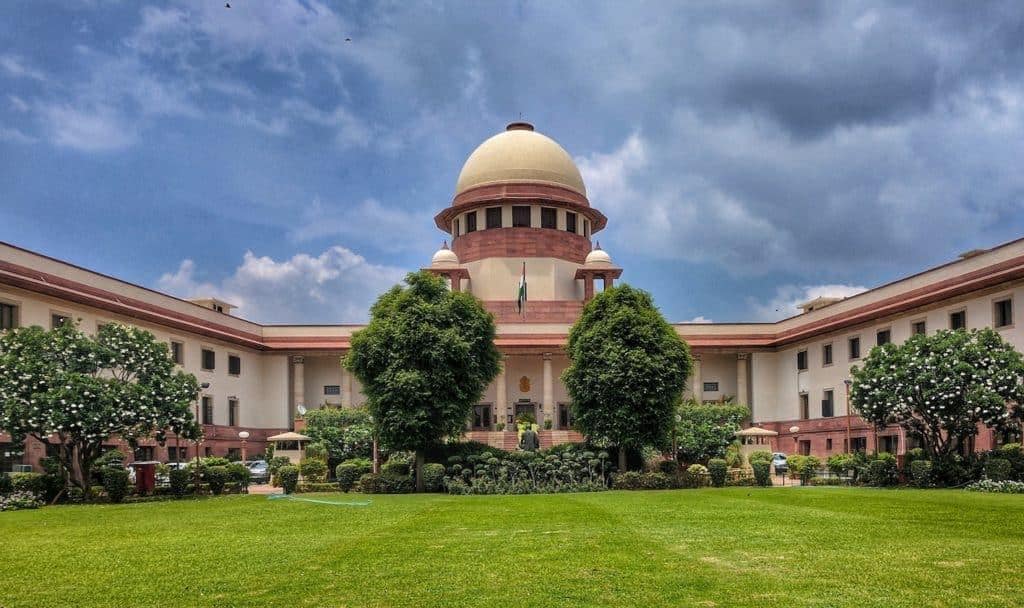Supreme Court dismisses plea against GSK pharma for deficiency in service
The Supreme Court has dismissed a plea by a man against an order of the National Consumer Disputes Redressal Commission (NCDRC) which held that he has miserably failed to establish deficiency in service on the part of GlaxoSmithKline Pharmaceuticals Ltd in relation to the administration of a hepatitis vaccine.
According to the case, the man in order to achieve immunity against contracting Hepatitis B approached his family physician to administer the repeat dose of the vaccine Engerix-B, along with his family members.
The family members of the appellant had no adverse reaction to the said drug but, after four days of being vaccinated, the appellant felt severe pain in his left shoulder at the site of the injection and he suffered pain while moving his shoulder and developed myositis.
The appellant contended that he developed a sudden permanent disability in his shoulder which according to him was caused due to adverse reaction of the vaccine Engerix-B manufactured by Glaxo.
A bench of Justices A S Bopanna and Prashant Kumar Mishra said the drug is made available in the market after certification and nothing has been placed on record to indicate that this is a drug which was available “of the shelf”, without prescription.
“If the same drug was administered to all the family members and after the third dose was administered to the appellant he had suffered the present discomfort complained of, it would also raise a question as to whether it had been administered in the manner and at this spot where it ought to be administered.
“If these aspects of the matter are kept in view, in fact, the allegations as made by the appellant would also make the said family doctor responsible and ideally he ought to have been a party respondent to the proceedings rather than filing his affidavit,” the bench said.
The apex court said that non-mentioning of myositis as an adverse reaction in the literature accompanying the injection or on the vial, did not amount to “deficiency of service” on the part of the pharma company.
“Therefore in the facts on hand, if the matter is looked at from its correct perspective it is seen that except for the appellant assuming that he has suffered myositis and the cause for the same was the Engerix-B vaccine being administered, the same has not been established with the minimal required evidence to conclude even on preponderance of probability,” the bench said.
The top court was hearing a plea by a man challenging an order of the National Consumer Disputes Redressal Commission.
According to the case, the man in order to achieve immunity against contracting Hepatitis B approached his family physician to administer the repeat dose of the vaccine Engerix-B, along with his family members.
The family members of the appellant had no adverse reaction to the said drug but, after four days of being vaccinated, the appellant felt severe pain in his left shoulder at the site of the injection and he suffered pain while moving his shoulder and developed myositis.
The appellant contended that he developed a sudden permanent disability in his shoulder which according to him was caused due to adverse reaction of the vaccine Engerix-B manufactured by Glaxo.
A bench of Justices A S Bopanna and Prashant Kumar Mishra said the drug is made available in the market after certification and nothing has been placed on record to indicate that this is a drug which was available “of the shelf”, without prescription.
“If the same drug was administered to all the family members and after the third dose was administered to the appellant he had suffered the present discomfort complained of, it would also raise a question as to whether it had been administered in the manner and at this spot where it ought to be administered.
“If these aspects of the matter are kept in view, in fact, the allegations as made by the appellant would also make the said family doctor responsible and ideally he ought to have been a party respondent to the proceedings rather than filing his affidavit,” the bench said.
The apex court said that non-mentioning of myositis as an adverse reaction in the literature accompanying the injection or on the vial, did not amount to “deficiency of service” on the part of the pharma company.
“Therefore in the facts on hand, if the matter is looked at from its correct perspective it is seen that except for the appellant assuming that he has suffered myositis and the cause for the same was the Engerix-B vaccine being administered, the same has not been established with the minimal required evidence to conclude even on preponderance of probability,” the bench said.
The top court was hearing a plea by a man challenging an order of the National Consumer Disputes Redressal Commission.
